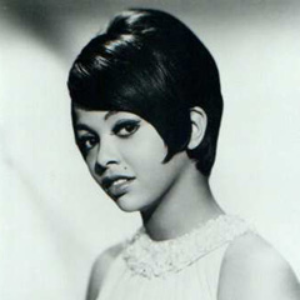
| Trackimage | Playbut | Trackname | Playbut | Trackname |
|---|---|---|---|---|
| 84721808 | Play | I Cried | 00:00 Tools | |
| 84721809 | Play | If You Don't Think | 00:00 Tools | |
| 84721810 | Play | This Time Tomorrow | 00:00 Tools | |
| 84721811 | Play | It's Mine | 00:00 Tools | |
| 84721812 | Play | Voice Of Experience | 00:00 Tools | |
| 84721814 | Play | If You See Bill | 00:00 Tools | |
| 84721813 | Play | I've Got Nothing To Say But Goodbye | 00:00 Tools | |
| 84721817 | Play | Make The Night A Little Longer | 00:00 Tools | |
| 84721818 | Play | I Can't Hold It In Anymore | 00:00 Tools | |
| 84721815 | Play | If I Would Marry You - Stereo Version | 00:00 Tools | |
| 84721816 | Play | This Time Tomorrow - Stereo Version | 00:00 Tools | |
| 84721819 | Play | If I Would Marry You | 00:00 Tools | |
| 84721821 | Play | Sinner's Devotion | 00:00 Tools | |
| 84721820 | Play | If I Would Marry You - Duet with Jimmy Radcliffe | 00:00 Tools | |
| 84721822 | Play | I Wancha To Be Sure | 00:00 Tools | |
| 84721823 | Play | Big John | 00:00 Tools | |
| 84721824 | Play | This Time Tomorrow - Single Version | 00:00 Tools | |
| 84721825 | Play | If I Would Marry You (Stereo Version) | 00:00 Tools | |
| 84721826 | Play | This Time Tomorrow (Stereo Version) | 00:00 Tools | |
| 84721827 | Play | I Wancha' To Be Sure | 00:00 Tools | |
| 84721830 | Play | It's Mine - Single Version | 00:00 Tools | |
| 84721828 | Play | I Can't Hold It In Any More | 00:00 Tools | |
| 84721829 | Play | If I Would Marry You (Duet with Jimmy Radcliffe) | 00:00 Tools | |
| 84721831 | Play | I Cry | 00:00 Tools | |
| 84721832 | Play | This Time Tomorrow [Stereo Version] | 00:00 Tools | |
| 84721833 | Play | This Time Tomorrow, 1964 | 00:00 Tools | |
| 84721834 | Play | Make The Night Just A Little Longer | 00:00 Tools | |
| 84721835 | Play | If I Would Marry You [Stereo Version] | 00:00 Tools | |
| 84721836 | Play | 6. I Cried | 00:00 Tools | |
| 90316411 | Play | I've Got Nothing To Say But Goodbye (s) | 00:00 Tools |

-
- 10,307
- plays
-
- 2,494
- listners
-
- 10307
- top track count
Born Thomasina Winifred Montgomery in Philadelphia, Pennsylvania, Tammi Terrell entered the music business at the age of 13, regularly performing live. In 1961 she was signed to the fledgling Scepter Records (later Wand Records), recording under the name "Tammy Montgomery". After coming to the attention of James Brown she recorded one single apiece for Brown's own Try Me record label and, in 1964, Checker Records. The year after that, she was spotted by Berry Gordy Jr. while playing live, and signed to his Motown label. Attractive and talented, she became romantically linked with both James Brown and David Ruffin, who was in the award winning group The Temptations. Initially Terrell recorded solo, with only moderate success (she had a pair of R&B Top 30 singles in 1966, "I Can't Believe You Love Me" and "Come on and See Me") . However, from 1967 onwards she recorded a series of duets with Marvin Gaye, producing hits with Ashford & Simpson written tunes such as "Ain't No Mountain High Enough", "Ain't Nothing Like the Real Thing" and "You're All I Need to Get By". However, Terrell's success was to be short-lived. On October 14, 1967, while in concert at the homecoming for Hampden-Sydney College, Virginia, outside of Farmville. she collapsed in Gaye's arms. She was rushed to the hospital, she was later diagnosed with a malignant brain tumor. From then on her health deteriorated. Gaye later told his biographer David Ritz that Terrell was no longer able to record and that Valerie Simpson recorded most of the female vocals on the final Gaye/Terrell duet album, Easy. (Simpson is quoted as denying this in a book written by Terrell's sister Ludie Montgomery.) Terrell died on March 16, 1970 at the age of only 24. Marvin Gaye reacted to her death by taking a two year hiatus from concert performance and went into self-isolation. In addition, in 1971 Gaye's classic album What's Going On, an introspective, low-key work which dealt with mature themes, was in part a reaction to Terrell's death. Read more on Last.fm. User-contributed text is available under the Creative Commons By-SA License; additional terms may apply.